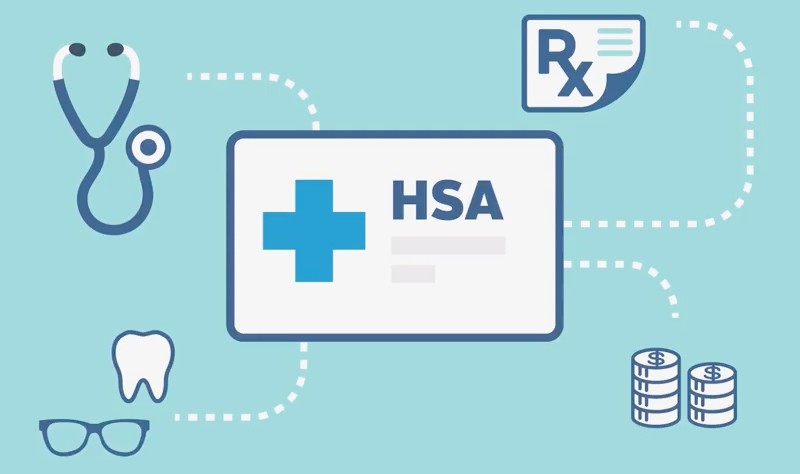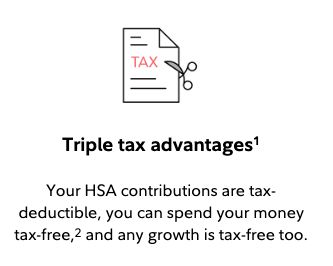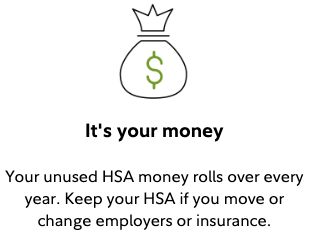This post may contain affiliate links. Read our disclosure here.

If you have a high deductible health insurance plan (one that you don’t pay a co-pay to see the doctor but pay for everything until you’ve met your deductible) then you NEED to have a Health Saving Account (HSA) with it!
I just saw today that Fidelity, one of the leading investment firms, now has Fee-Free HSA Accounts.
- No monthly maintenance fee no matter the balance.
- No fees to invest your money.
- No fee to use your debit card or remove funds.
Having your HSA in an investment account is massively better than having an account at your local bank that earns less than 1% interest! We’ve have an account that has been earning between 4-5% interest for the last year through investments.
What is a Health Saving Account?
HSA accounts are only allowed with high deductible plans, and are a great way to save money tax-free! You put money in tax-free plus as long as you use the money for health related expenses it comes out tax-free too. The best part… you can have the money in investment accounts earning great returns, all tax-free!!
You have to contribute money by the end of calendar year to count on this years taxes, but you do not have to use the money. You can keep putting in your full deductible amount up to $7000 per year and possibly never use it. When the day comes that you do need it though, the money is all there, plus all your earnings, tax-free!
Do We Need It?
Even if you have no tax liability at the end of the year you are still eligible for an HSA and it can end up helping you remain tax free as well. The money you invest comes off as an “above the line” deduction reducing your Adjusted Gross Income. That means you’re saving money before anything even comes out for taxes. This decreases your taxable income and could potentially drop you into a lower tax bracket. Contributing to a 401k also has this affect (so do that too)!
Also consider later in life when your kids are grown that you may have a larger tax liability, this money along with all the earnings it makes over the years will be tax-free and help pay for any medical bills you have.




